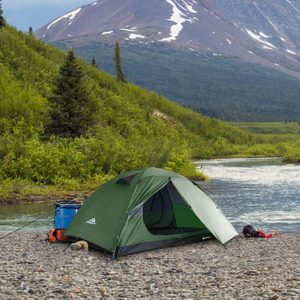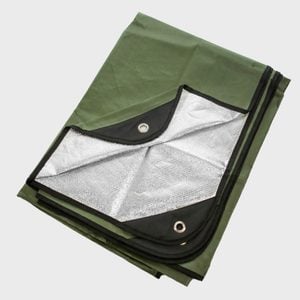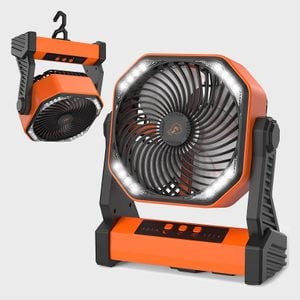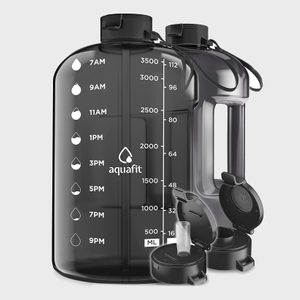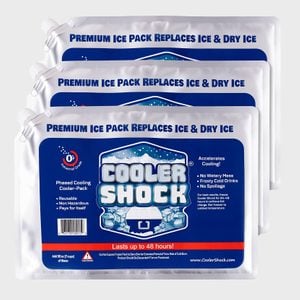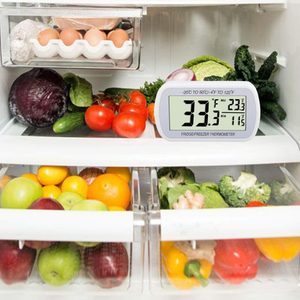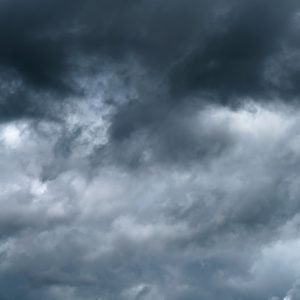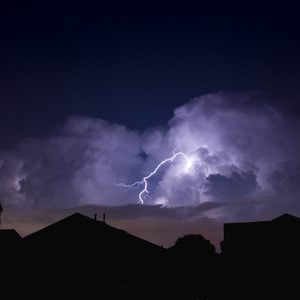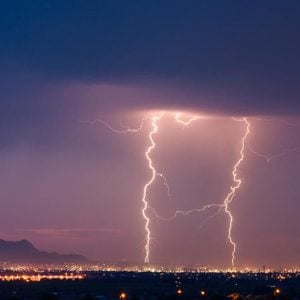What to Do When the Power Goes Out in Your Home
Updated: Feb. 29, 2024
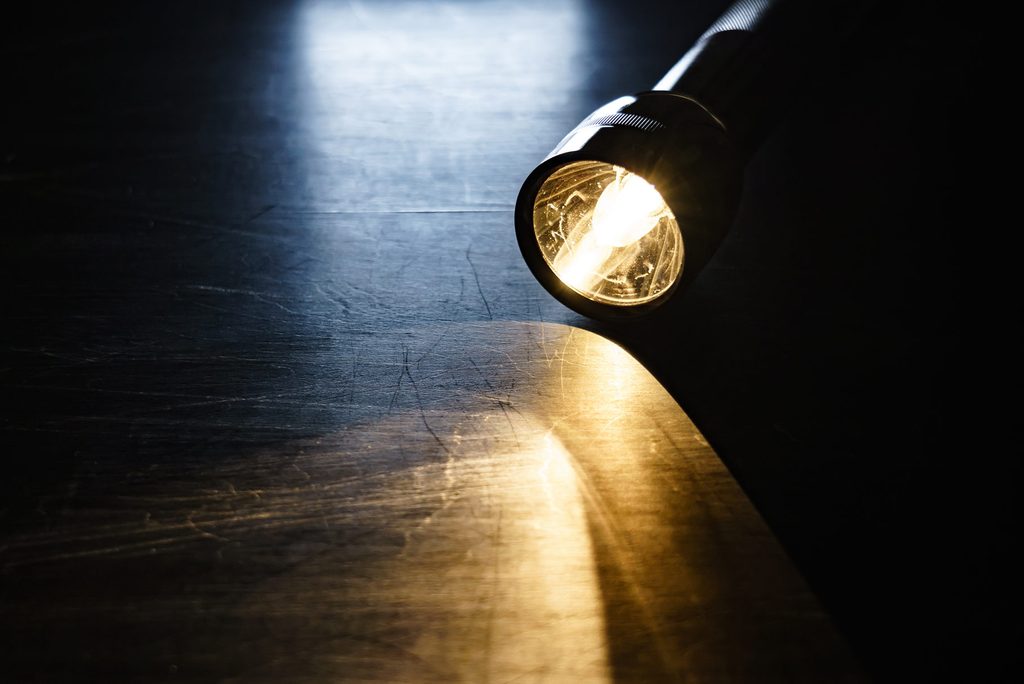
Power outages can put you and your home at risk. Here's what you need to know to stay safe.
Our editors and experts handpick every product we feature. We may earn a commission from your purchases.
From how to prepare for a hurricane to how to prepare for a tornado, disaster preparedness is essential. Heat waves, freezing temperatures, some of the strongest hurricanes ever, problems with the electrical grid, natural disasters or even just a downed tree can all lead to an interruption in your electricity service. It’s important to know how to deal without power to keep yourself, your family, your home and your pets safe. You already know about the quarter water trick, but how else can you prepare for losing electricity? Here are some tips for what to do when your power goes out, no matter what the cause.
What to do when the power goes out
First things first: When the power goes out, there are some immediate steps you should take. This is what to do when the power goes out.
Confirm the power is out
While this may seem obvious, you want to make sure you didn’t just blow a fuse or burn out a lightbulb.
Call your utility company and report the outage
This way they are aware of the situation and can begin to fix the outage.
Unplug appliances
Power surges can damage your sensitive or expensive appliances and electronics. And when the power comes back on, having too many large appliances plugged in could trip your electrical breakers. Worse, you might forget you had something like the oven on, which could pose a safety hazard if the power comes back on overnight or while you are away. It’s better to be safe than sorry!
Keep your fridge and freezer closed
Your food will stay coldest (and safest) if you keep the fridge and freezer closed while the power is off. This will keep the cool air insulated inside for as long as possible, extending the life of your food and slowing it from warming and spoiling. More on this below!
Find a light source
Take advantage of any daylight or phone light you might have to locate flashlights and candles. While the flashlight on your phone is great, you’re going to want to conserve phone battery for emergencies, so it isn’t a good long-term solution.
Last, if you have resources to spare, learn how to help after a natural disaster.
How to stay warm
What to do when the power goes out during the winter? Well, the most important thing, if it’s cold outside, is to save what heat you have in your home.
Insulate
Cover windows and doors with blankets, or tape plastic over them, to keep out drafts and to slow down the cooling process inside your home.
Choose a warming room
One room is much easier to keep warm than multiple rooms, so choose a “warming room.” This is a room that you will spend your time in until the power comes back on. The best room is the one that’s small and has the fewest windows. Have everyone in your household bunker down in this room, including pets. Body heat will help keep the room warm if you keep the door closed.
Bundle up
Make sure to bundle up with blankets and hot water bottles. If you have a camping tent, setting it up as your warming room in the middle of the living area or in a bedroom is a great idea too. Tents are designed to trap body heat, and they’re small, so they don’t take long to warm up.
Be safe
Whatever you do, do not use gas ovens, grills or heaters to keep warm. These can cause a buildup of noxious gases in your home that can be deadly. Make sure you have a tornado-safe room.
How to stay cool
Staying cool during hot weather is just as important as staying warm during cold weather. Here are some tips for what to do when the power goes out during the summer.
Drink fluids
Make sure you stay hydrated. Your body needs water to cool itself down.
Block the sun
Cover windows with curtains or blankets to keep out the hot sun.
Open windows
Open windows that aren’t facing the sun to let in a breeze.
Cool down
Wear a wet bandanna around your neck or head and fan it with your hands, a magazine or a battery-powered fan to cool yourself.
Use water
Take a cool shower or bath. Add ice to your bath if the water coming from the cold tap is warm.
Cook outside
Cook outside on a grill instead of using your gas stove to prevent adding more heat to the inside of your home.
Still not cool enough? These tips will keep your home cool without AC.
Keep food fresh and safe
When your electricity goes out, the food inside your fridge and freezer is at risk of becoming too warm. When food gets too warm, it can grow dangerous bacteria. According to the FDA, food needs to remain at 40 degrees or below to prevent spoilage. To ensure food stays chilled, there are a few things you can do.
Bob Gravani, member expert at the Institute of Food Technologists (IFT) and professor of food science at Cornell University, shares these tips for what to do when your power goes out.
Check the temp
Make sure you have an appliance thermometer in your refrigerator and freezer. Your refrigerator should be at or below 40°F (4.44°C), and your freezer should be at or below 0°F (-17.78°C). This is how long food can last in a fridge without power.
Use coolers
Have some coolers on hand to store refrigerated foods. Freeze containers of water (such as empty gallon jugs), as well as ice cubes and gel packs, ahead of time for use in coolers to keep food as cold as possible if the power goes out. If you can, plan ahead and find out where you can buy dry ice and block ice.
Keep it shut
Keep the doors to your refrigerator and freezer closed as much as possible. Your refrigerator should maintain its cold temperature for about four hours without power. A full freezer will hold its temperature for about 48 hours, but only 24 hours if it is half full.
Err on the side of caution
When in doubt, throw it out. If at any point food is above 40°F (4.44°C) for two hours or more, throw it away. Never taste food to determine if it’s safe or depend on appearance or odor. Food in the freezer that still has ice crystals can be refrozen or cooked, but if you’re unsure, it’s better to toss it out. Eating food not kept at the proper temperature may cause illness even when thoroughly cooked.
Stock the pantry
Keep a three-day supply of nonperishable food that doesn’t require refrigeration or cooking, such as canned goods and boxed milk. And don’t forget to buy enough bottled water. Hint: This is the No. 1 item Walmart stocks up on before a storm.
Water problems
Making sure your water is safe is important too. When the power goes out for you, it might also be out for the municipal water treatment center, so you may not have water for long. You can stock up on water by filling up your bathtub.
Power outages at water treatment plants can also mean that your water may become unsafe for both you and your pets. “Even though the water coming from the tap looks clean, it could be unsafe to drink. Check with local authorities to see if there is a boil alert in effect,” says Diane Vukovic, author of Disaster Preparedness for Women. If you have a gas stove, Vukovic advises bringing the water to a full rolling boil for one minute or, if you live at an elevation of 6,500 feet or more, three minutes.
If your home uses well water, you likely won’t have water until the power comes back on. The best way to get your water back is to hook your well pump up to a gas-powered generator. You can often rent these types of generators at local equipment rental service providers. Installing a permanent backup generator is a good idea to keep water flowing during outages in the future. You may also want to research if your well system can support the addition of a manual pump that can be used without electricity.
Save your pipes
Your home can be at risk without electricity too. During cold weather, pipes can easily freeze and burst if the home isn’t heated. To prevent pipes from freezing, turn on all the cold water faucets in the house so they are dripping. Just this little bit of water flowing can prevent pipes from freezing solid.
“However, this isn’t a good solution when water outages are also a concern,” notes Vukovic. “You’ll need to completely shut off your water at the main and drain water in the pipes (collect it in clean buckets and pots so you can use it later). Also, drain your water heater so it doesn’t crack. To protect your drainage system, you can put antifreeze in the drain traps below sinks, toilets and washing machines.”
Pipes already frozen? Don’t panic. Here are tricks to unfreeze them.
Power up
You can keep your electronics powered during an outage with a few simple devices. A power bank the size of a deck of cards can be charged up before an outage, or a solar charger can keep phones juiced up with energy from the sun. For larger items, you can use a power station to power fans, small heaters and laptops. Some power stations can even be used with small solar panels to keep them charged for as long as you need them.
Sources:
- Bob Gravani, member expert at the Institute of Food Technologists and professor of food science at Cornell University
- Diane Vukovic, author of Disaster Preparedness for Women


